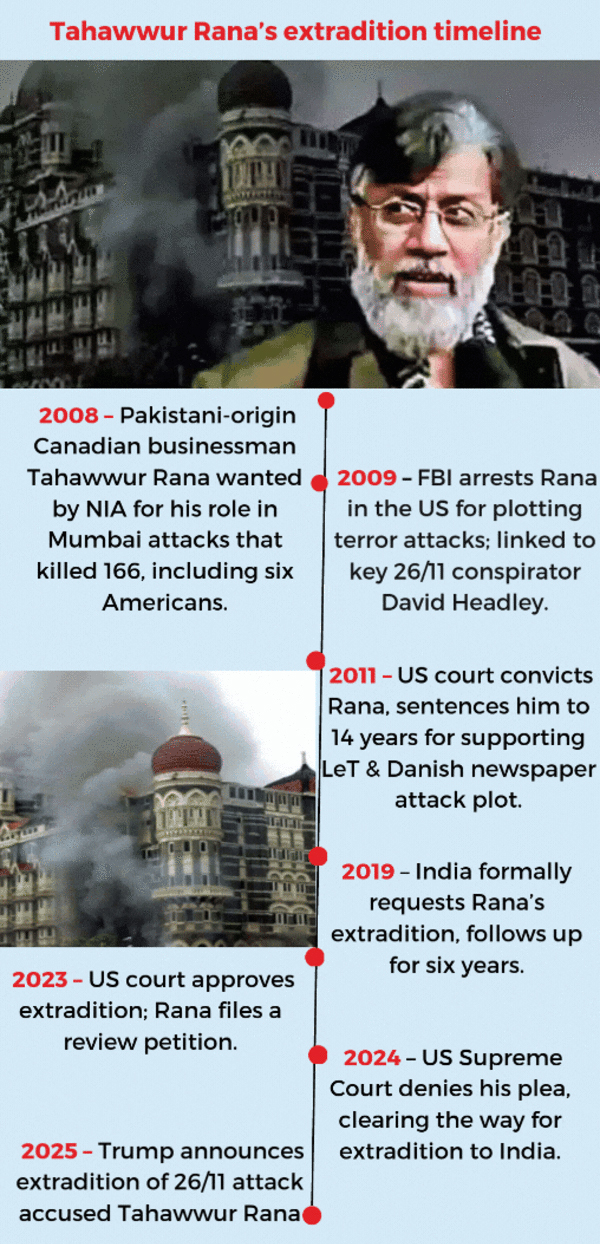Context:
Recently, United States Supreme Court has rejected Tahawwur Hussain Rana's plea against his extradition to India. Rana, who is accused in the 2008 Mumbai terror attack, had filed an "Emergency Application for Stay" after President Donald Trump approved his extradition.
Rana's extradition is set to occur under the India-US Extradition Treaty, signed by both countries in 1997. The treaty provides a legal framework for the extradition of individuals charged or convicted of serious crimes in either nation.
Rana's Involvement in the 26/11 Attacks
Tahawwur Rana is accused of aiding in the reconnaissance for the 26/11 attacks carried out by David Coleman Headley, his schoolmate in Pakistan. He is also accused of participating in the terror conspiracy.
About extradition:
Extradition is the legal process by which one state requests the return of a person who is accused or convicted of a crime that is punishable under the laws of the requesting state, and the crime was committed outside the state of refuge. In other words, it is the transfer of an individual from one country to another to face trial or serve a sentence.
Extraditable persons include:
- Individuals charged with a crime but not yet tried.
- Individuals who have been tried and convicted but have escaped custody.
- Individuals convicted in absentia (without being present during the trial).

Legal framework for extradition in India:
Extradition in India is governed by the Indian Extradition Act, 1962. This Act provides the legal process for extraditing individuals to and from India, both for crimes committed within India and in foreign countries. The process is typically based on bilateral treaties between India and other countries.
About Extradition Treaty:
An extradition treaty is an agreement between India and another country that facilitates the return of individuals who are fugitives from justice. The treaty outlines the conditions under which extradition can take place and is binding on both countries involved. Extradition treaties are usually bilateral, meaning both countries agree on the terms.
key principles followed in the extradition process:
The extradition process follows several important principles:
- Dual Criminality: The crime for which extradition is requested must be an offence under the laws of both the requesting and requested countries.
- Prima Facie Case: The requesting country must present sufficient evidence that supports the accusation against the individual.
- Specific Offence: Extradition should only be granted for the offence mentioned in the request, and not for any other charge.
- Fair Trial: The individual must be provided with a fair trial upon their extradition to the requesting country.
Conclusion:
As Rana prepares to face trial in India, law enforcement agencies in the country are ramping up efforts to ensure that he is held accountable for his role in the 26/11 attacks. His extradition represents a major victory for India's relentless fight against terrorism and its determination to bring the perpetrators of the 2008 Mumbai attacks to justice.







